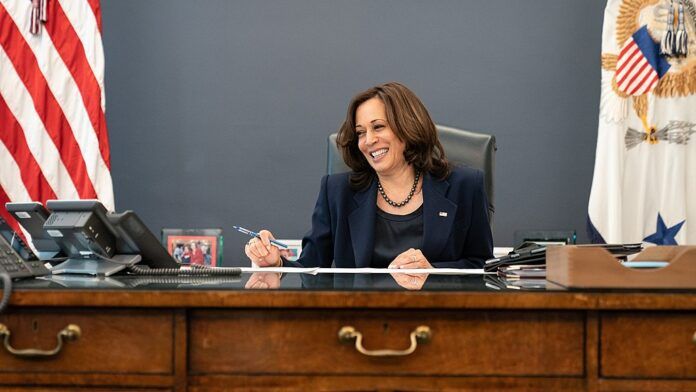Vice President Kamala Harris and President Joe Biden rally in Pittsburgh, opposing the sale of U.S. Steel to Nippon Steel, citing concerns over American steel jobs and industry strength
In a pivotal campaign appearance in Pittsburgh, Pennsylvania, Vice President Kamala Harris voiced strong opposition to the proposed sale of U.S. Steel to Japan’s Nippon Steel. Joining President Joe Biden for a Labor Day rally, Harris underscored the administration’s stance against the sale, emphasizing the need to keep U.S. Steel American-owned and American-operated.
Speaking to a crowd of enthusiastic union members, Harris declared, “U.S. Steel is an historic American company, and it is vital for our country to maintain strong American steel companies.” Her remarks align with Biden’s long-held position on the matter. Since March, Biden has consistently opposed the sale, arguing that it would negatively impact American steelworkers and undermine the industry’s domestic base.
Embed from Getty ImagesThe rally, held at an International Brotherhood of Electrical Workers hall, marked a significant moment for Harris as she solidified her alignment with Biden on this key issue. Her support for the White House’s stance is notable given her recent focus on expanding her policy presence following Biden’s endorsement of her as the 2024 Democratic nominee.
Biden, who appeared first on stage, received a warm reception with chants of “Thank You, Joe.” He praised Harris as the best choice for the presidency and emphasized her role in supporting union workers and advancing the middle-class agenda. Biden’s endorsement of Harris as his successor underscores the evolving dynamics of the campaign and their shared policy goals.
The event was Harris’ second of the day, following a solo appearance in Detroit, where she highlighted the achievements of unions and their impact on workers’ rights. Her comments in Pittsburgh mirrored the administration’s broader economic policies, including support for expanding tariffs on imported Chinese steel—a position that echoes Trump’s previous stance on trade.
U.S. Steel has defended its planned sale to Nippon Steel, asserting that the deal will benefit American workers and enhance the steel industry’s competitiveness. The company argues that the partnership with Nippon Steel will bolster American jobs, strengthen supply chains, and counteract China’s influence in the global steel market.
Nippon Steel responded to Harris’ criticism by expressing confidence in the acquisition’s potential to revitalize the American steel industry and provide significant benefits to local communities and national security. The company highlighted its commitment to the U.S. market and its long-standing investment in American operations.
Harris’ remarks reflect her broader campaign strategy of presenting herself as both a continuation of Biden’s policies and a fresh approach to leadership. While she has moved faster than Biden on some issues, such as advocating for tax cuts and incentives to encourage homeownership, she remains closely aligned with the administration’s core agenda.
As Harris and Biden returned to Washington, their joint campaign efforts underscored the importance of Pennsylvania in the 2024 election. Harris, in particular, aims to leverage her positions on labour and economic policies to consolidate support and address key voter concerns.
Analysis:
Political: Harris’ opposition to the U.S. Steel sale highlights a critical intersection of economic policy and political strategy. By aligning with Biden’s stance, she reinforces her commitment to preserving American manufacturing and supporting union workers, positioning herself favourably with key voter groups in swing states like Pennsylvania. The debate over the sale also reflects broader discussions about trade and domestic industry, areas where both Biden and Harris seek to assert their policy credentials.
Social: The issue of U.S. Steel’s sale taps into broader societal concerns about job security and the impact of foreign ownership on American industries. Harris’ statements resonate with voters who prioritize domestic job protection and economic stability, reinforcing the importance of unions and labour rights in the national conversation. Her focus on these issues helps to underscore the administration’s commitment to workers and working-class communities.
Racial: While the debate over U.S. Steel’s sale does not directly address racial issues, it intersects with broader discussions about economic equity and access to opportunities. Ensuring that industries critical to economic stability remain domestic can influence broader conversations about equal access to jobs and fair treatment across different communities.
Gender: Harris’ prominent role in opposing the sale and campaigning alongside Biden reflects broader gender dynamics in political leadership. As a female vice president, her active participation in high-profile policy issues underscores her leadership and influence within the administration. This visibility helps to challenge traditional gender roles in politics and highlights the evolving landscape of female political representation.
Economic: The economic implications of the U.S. Steel sale are significant. The administration’s opposition to the deal reflects concerns about maintaining domestic control over critical industries and protecting jobs. By opposing the sale, Biden and Harris aim to bolster American steel production and safeguard the economic interests of steelworkers. The debate also touches on broader issues of trade policy, industrial strategy, and the impact of foreign investment on American businesses.
